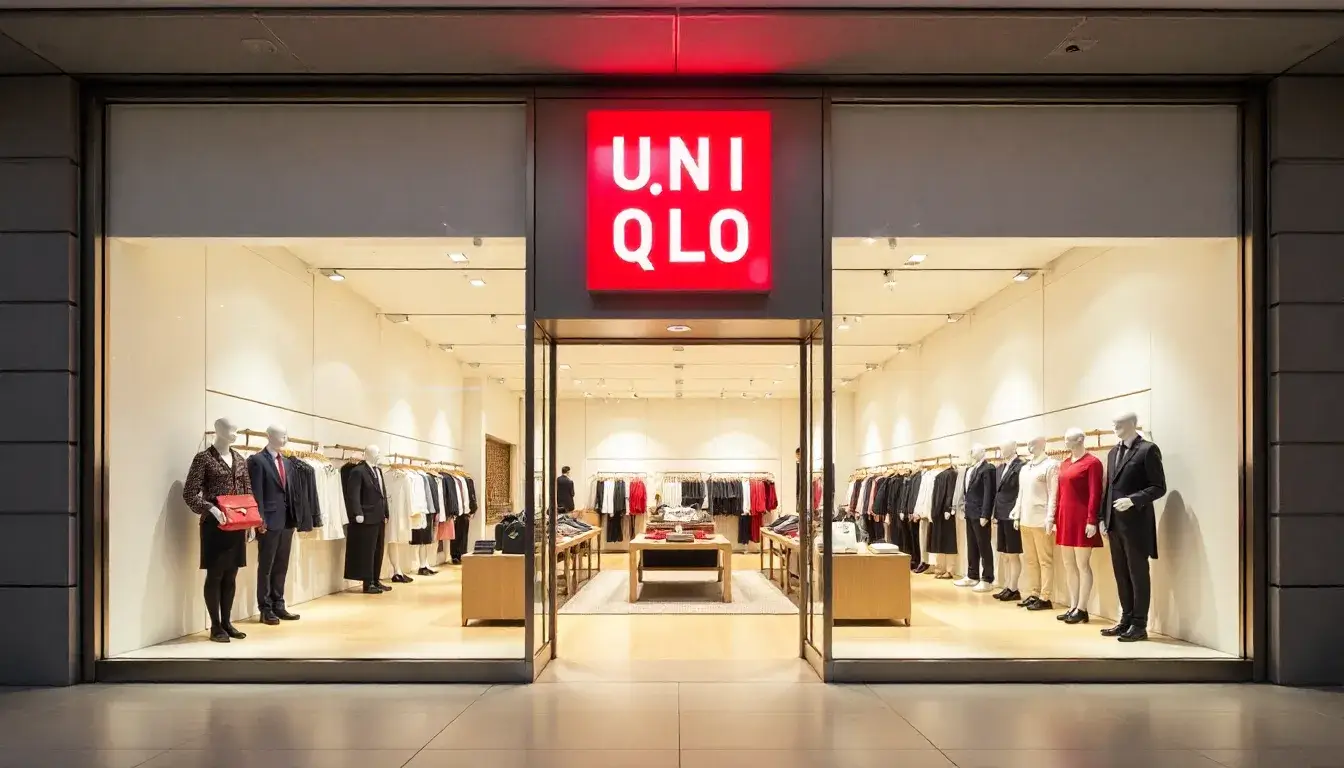Is Uniqlo fast fashion? This question has intrigued millions of shoppers who admire the Japanese brand’s simple, functional clothing. Known for its affordability, innovation, and quality, Uniqlo seems to sit between traditional retail and fast fashion.
In this in-depth guide, we explore Uniqlo’s business strategy, sustainability efforts, and global influence to determine whether it truly deserves the fast fashion label.
Introduction: Understanding the Uniqlo Phenomenon
Over the past two decades, Uniqlo has transformed from a small Japanese clothing retailer into one of the most recognized fashion brands in the world. With over 2,400 stores globally, the brand is admired for its commitment to simplicity, comfort, and innovation. While many associate it with minimalist everyday wear, others wonder if its rapid growth and affordable pricing make it a part of the fast fashion industry.
This article explores that question in detail—examining Uniqlo’s production model, supply chain, sustainability initiatives, and market positioning to understand where it truly stands in today’s fashion landscape.
What is Fast Fashion?
Before labeling Uniqlo, it’s essential to define what “fast fashion” means. Fast fashion is a business model where clothing is produced quickly and cheaply to keep up with rapidly changing trends. Brands in this space prioritize speed and volume over durability and ethics.
Typical characteristics of fast fashion brands include:
- Rapid design-to-store turnaround (often within weeks).
- Low-cost production in developing countries.
- Trend-driven clothing designed for short-term use.
- Frequent new collections to encourage repeat purchases.
- Environmental concerns due to mass production and waste.
Major examples include Zara, H&M, Shein, and Forever 21, which all rely heavily on trend cycles and inexpensive materials to stay relevant.
So where does Uniqlo fit in this picture?
Uniqlo’s Business Model: Quality Meets Affordability
Unlike traditional fast fashion companies, Uniqlo’s focus is not on chasing trends but on creating timeless, high-quality essentials. Its design philosophy, “Made for All,” reflects its goal of producing clothing that transcends age, gender, and cultural barriers.
Key elements of Uniqlo’s model include:
- Timeless Designs: Instead of chasing runway trends, Uniqlo focuses on wardrobe staples like t-shirts, jeans, and outerwear.
- Fewer Collections: It doesn’t release dozens of micro-seasons each year, but updates its core collections gradually.
- Fabric Innovation: Through in-house R&D, Uniqlo produces proprietary materials such as HEATTECH, AIRism, and Ultra Light Down.
- Durability Over Disposability: The brand encourages longer wear by emphasizing quality craftsmanship.
Uniqlo’s founder, Tadashi Yanai, has often stated that the company’s goal is to create LifeWear—simple, high-quality clothing designed to improve everyday living. This differentiates it from fast fashion’s “buy and discard” culture.
Uniqlo vs. Fast Fashion: A Comparison
| Feature | Uniqlo | Typical Fast Fashion Brand |
|---|---|---|
| Design Approach | Focuses on basics and essentials | Follows rapid trend cycles |
| Production Speed | Moderate, planned production | Extremely fast, often 2–3 weeks |
| Material Quality | High-quality, innovative fabrics | Cheap synthetic blends |
| Collection Frequency | Limited and consistent | New items every few weeks |
| Longevity | Designed for long-term wear | Short lifespan, disposable |
| Sustainability Focus | Active efforts toward recycling and efficiency | Minimal or greenwashing efforts |
While Uniqlo shares the affordability and scale of fast fashion, its slower design cycles and focus on innovation distinguish it from the typical mass-market model.
Uniqlo’s Sustainability Efforts
As consumers become more environmentally conscious, sustainability is now a defining factor in fashion. Uniqlo has made visible efforts to integrate eco-friendly practices into its operations, though opinions are mixed on their overall impact.
1. Recycling Programs
Uniqlo runs the RE.UNIQLO initiative, which collects used clothing from customers for recycling or reuse. These garments are either transformed into new products or donated to communities in need.
2. Sustainable Materials
The company is gradually increasing its use of organic cotton, recycled polyester, and responsibly sourced down. By 2030, Uniqlo aims to use more sustainable fabrics across its entire product range.
3. Energy and Production Efficiency
Uniqlo’s parent company, Fast Retailing, has set goals to reduce greenhouse gas emissions across its supply chain and invest in renewable energy sources.
4. Ethical Manufacturing
Unlike some fast fashion giants, Uniqlo works closely with partner factories to improve working conditions and transparency. The brand publishes annual sustainability reports outlining its progress.
Critics’ Perspective: Is Uniqlo Still Fast Fashion?
Despite its differences, some critics still classify Uniqlo as fast fashion for several reasons:
- Global Scale: With thousands of stores and rapid expansion, Uniqlo operates on a massive scale similar to H&M and Zara.
- Affordable Prices: Low pricing often relies on large-scale manufacturing and cost efficiencies.
- Volume of Production: Even with fewer collections, Uniqlo produces millions of units annually.
However, these points alone don’t necessarily make it fast fashion. The distinction lies in intent—Uniqlo’s products are not designed to be thrown away after a season but to be worn repeatedly.
Uniqlo’s Innovation: The Technology Behind the Brand
Uniqlo’s success is deeply tied to its commitment to innovation. The company invests heavily in textile technology to enhance comfort and performance. Some notable innovations include:
- HEATTECH: Developed with Toray Industries, this fabric uses moisture from the body to generate heat, making it ideal for cold climates.
- AIRism: Lightweight, breathable fabric that regulates body temperature, perfect for hot and humid environments.
- BlockTech: A water-repellent and windproof material used in outerwear.
- Ultra Light Down: Packable jackets offering warmth without bulk.
These innovations reflect Uniqlo’s goal of combining functionality and simplicity, positioning it as a technology-driven lifestyle brand rather than a trend-driven fashion label.
How Uniqlo Markets Itself: The “LifeWear” Philosophy
Uniqlo doesn’t market itself as fashion-forward—it markets functionality. Its slogan, “Made for All,” captures the essence of universal clothing designed for everyday life. The brand appeals to consumers who value practicality over trends.
Unlike fast fashion brands that rely on influencer marketing and rapid social media trends, Uniqlo emphasizes:
- Real-world utility and comfort.
- Minimalist visuals and store layouts.
- Collaborations with designers (e.g., Jil Sander, JW Anderson) that focus on accessible luxury rather than trend-chasing.
Uniqlo’s Global Expansion and Supply Chain
Uniqlo’s international success comes from its efficient and centralized supply chain. Its parent company, Fast Retailing, oversees every stage of production, from fabric creation to retail distribution. This vertical integration allows Uniqlo to maintain quality control and consistency.
The brand also tailors its offerings based on regional climates and cultural preferences—introducing lighter materials in tropical regions and thermal wear in colder markets. This flexibility has made Uniqlo a global powerhouse, especially in Asia, Europe, and North America.
Uniqlo’s Competitors: How It Stands Apart
Uniqlo competes with brands like Zara, H&M, and Gap, but its business model sets it apart:
- Zara focuses on runway-inspired designs and trend turnover.
- H&M offers low-cost trendy apparel with increasing sustainability efforts.
- Gap emphasizes American casual wear but has struggled to maintain relevance.
In contrast, Uniqlo’s strength lies in consistency, innovation, and global adaptability—traits that align more with premium basics brands like Muji or Patagonia than with traditional fast fashion retailers.
Consumer Perception: Why People Love Uniqlo
Consumers appreciate Uniqlo for several reasons:
- Affordable yet premium-quality basics.
- Functional fabrics suitable for all seasons.
- Minimalist aesthetic that complements various styles.
- Availability worldwide.
For many, Uniqlo strikes the perfect balance between price and quality—a rare feat in an industry known for overproduction and waste.
Is Uniqlo Truly Sustainable?
While Uniqlo’s sustainability journey is commendable, there’s still progress to be made. Critics argue that despite its eco-friendly messaging, the brand’s massive production scale contributes to environmental strain. However, its transparent reporting, recycling programs, and shift toward responsible sourcing indicate genuine intent to improve.
Uniqlo is not perfect—but it’s also not greenwashing to the same extent as many fast fashion rivals.
Conclusion: Is Uniqlo Fast Fashion?
So, is Uniqlo fast fashion? The answer lies somewhere in the middle.
Uniqlo shares characteristics with fast fashion in terms of affordability and scale, but it differs significantly in philosophy, production approach, and longevity. Its focus on innovation, quality, and sustainability positions it closer to a slow fashion brand operating at global scale.
In short, Uniqlo represents a hybrid model—an affordable fashion brand that merges technology, durability, and minimalist design. For conscious consumers seeking versatile, long-lasting clothing, Uniqlo stands as a thoughtful alternative to the waste-driven fast fashion industry.


Leave a Reply